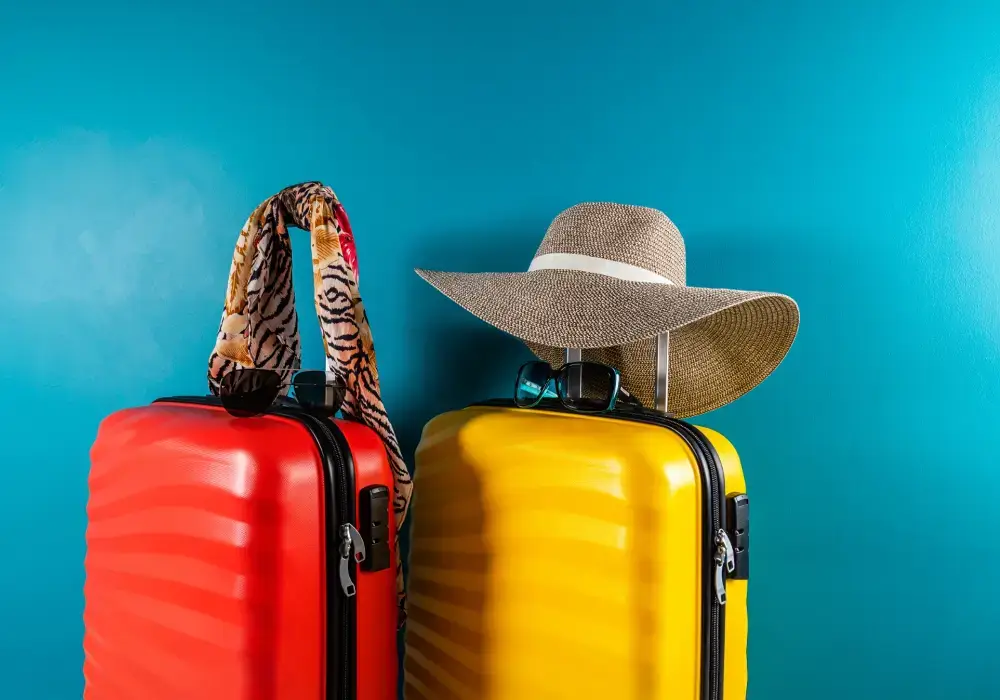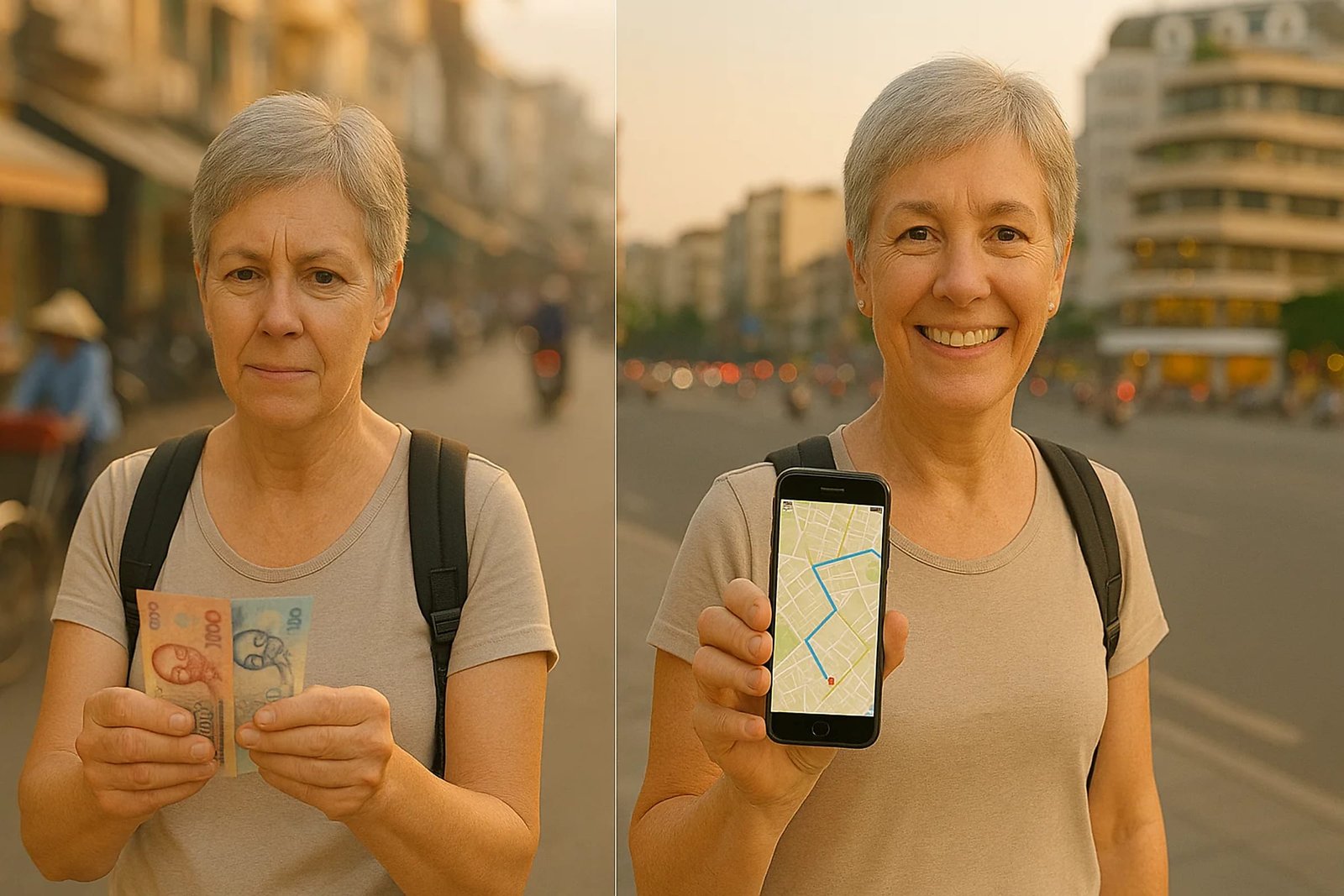Hey, fellow travel lovers! Wondering how to stay safe and healthy while exploring the world? Great news—traveling can keep you active and even slow down aging! But let’s be honest—staying healthy on the road becomes more important as we get older. That’s why I’m here with essential health tips for senior travelers. Whether you’re flying across the globe or hitting the road, a little planning can help you enjoy every adventure worry-free. Stay healthy, travel smart, and keep those travel dreams alive!
Live your best travel life
Why Staying Healthy Matters When You’re a Senior Traveler
Okay, so why all the fuss about staying healthy while traveling? Well, as we age, our immune systems aren’t always as strong as they used to be. That means we might be more likely to catch a bug or get worn out easily. Plus, if you’re dealing with mobility issues or other health conditions, it’s extra important to take good care of yourself. But don’t worry, it’s totally doable! With the right prep, you can minimize those risks and maximize the fun.
8 Health Tips for Senior Travelers
1. Plan Like a Pro: Smart Steps Before You Leave
First things first, have a chat with your doctor before you even think about packing your bags. They know your health history and can give you personalized advice. This is super important, especially if you have chronic diseases. Your doctor can also help you sort out any necessary vaccinations and give you the lowdown on diet and activities that are safe for you.
Medication Management
Make sure you have enough of your regular medications to last the whole trip. Keep them in their original containers and pack them in your carry-on bag, just in case your checked luggage gets lost. It’s also a good idea to have a list of your meds with you, including their generic names, in case you need a refill while you’re away.
Travel Health Insurance
Consider getting travel health insurance, especially if you have a chronic condition. It can help cover costs if you need medical care while you’re traveling.
Know Your Travel Details
Keep a copy of all your travel documents, including your itinerary, tickets, and hotel reservations. Share a copy with a family member or friend back home, so they know where you are and how to reach you.
2. Pack Smart: What to Bring
This is a big one. The less you have to lug around, the better. Think about bringing clothes that you can mix and match, and consider doing laundry on the road. If you have mobility limitations, a lightweight, rolling suitcase is a lifesaver.
Comfortable Clothing
Choose clothes that are loose and comfortable, and wear light layers that don’t trap sweat. This will help you stay comfy in different climates. And don’t forget a good pair of walking shoes!
Mobility Aids
If you use a cane, walker, or other mobility aid, make sure to bring it with you. If you’re flying, you can usually gate-check these items for free, so you can use them in the airport.
Other Essentials
- Sunscreen (SPF 30 or higher)
- Hand sanitizer
- Insect repellent
- A basic first-aid kit
- Snacks that are high in protein
- Refillable water bottle

3. Stay Hydrated and Eat Right: Fueling Your Body
Staying hydrated is super important when you’re traveling. Dehydration can make you feel tired and can even lead to other health problems. Carry a refillable water bottle and sip on it throughout the day. At restaurants, choose water over sugary drinks or alcohol.
Healthy Food Habits
Try not to overeat, even though it’s tempting to indulge on vacation. If you have any dietary restrictions or health conditions like diabetes, stick to the same rules you follow at home. Pack some healthy snacks like fruit, nuts, or protein bars to avoid relying on expensive and unhealthy airport food.
Be Careful with Food and Drink
Avoid eating undercooked meats, drinking tap water, or using ice cubes in places where the water quality might be questionable. When in doubt, stick to sealed water bottles.
4. Stay Active: Keep Moving
Long flights and car rides can be tough on your body. Get up and stretch your legs every hour or two to maintain good blood circulation. If you’re on a plane or train, try to get an aisle seat so you can move around more easily.
Simple Exercises
Do some simple exercises in your seat, like ankle rotations and leg lifts, to keep your blood flowing. If you’re on a road trip, take breaks every few hours to walk around and stretch.
Accessible Activities
Look for activities that are accessible to people with mobility issues. Many museums, parks, and other attractions offer wheelchair rentals or accessible tours.
5. Prioritize Sleep and Rest: Recharge Your Batteries
Getting enough sleep is crucial for staying alert and energized while traveling. Try to stick to your regular sleep schedule as much as possible.
Rest and Relaxation
Make sure to carve out some time each day just for rest and relaxation. Even a short nap can help recharge your body and improve your overall well-being.
Plan Wisely
Give your body time to rest before, during, and after your trip. Don’t try to cram too much into one day.
6. Minimize Exposure to Illness: Stay Germ-Free
Regularly washing your hands with soap and water is one of the best ways to prevent the spread of germs. If soap and water aren’t available, use hand sanitizer.
Avoid Touching Your Face
Try not to touch your eyes, nose, or mouth, as this is how germs often enter your body.
Be Mindful of Crowds
Avoid close contact with people who are sick, and try to avoid crowded places if possible.
7. Budget-Friendly Travel Tips
Traveling during the off-season can save you a lot of money on flights and hotels. Plus, you’ll avoid the crowds!
Look for Discounts
Many hotels, attractions, and transportation companies offer discounts for seniors. Be sure to ask!
Consider Alternative Accommodations
Instead of staying in a traditional hotel, consider renting an apartment or staying in a hostel. These options can often be more affordable.
Free Activities
Take advantage of free activities like walking tours, parks, and museums.
8. Safety First: Tips for Staying Safe
Pay attention to your surroundings and be aware of potential dangers, such as pickpockets or scams.
Keep your money and valuables out of sight, and avoid wearing expensive jewelry.
If something doesn’t feel right, trust your instincts and remove yourself from the situation.
Keep a list of emergency contacts with you, including local police and medical services.
Travel Alone Tips
Traveling alone can be an amazing experience, but it’s important to take extra precautions. Let someone know your itinerary, and check in with them regularly. Avoid walking alone at night, and stick to well-lit, populated areas.
Resources for Travelers with Mobility Issues
Accessibility Information
Before you book anything, check the accessibility information for your hotel, transportation, and activities. Many websites and travel guides provide detailed information about accessibility features.
Accessible Transportation
Look for transportation options that are accessible to people with mobility issues, such as buses with wheelchair lifts or taxis with ramps.
Travel Gear for Disabled Travelers
There’s a ton of travel gear out there designed to make traveling easier for people with disabilities.
- Wheelchair/Mobility Scooter: If you use a wheelchair or mobility scooter, make sure it’s in good working condition before you go.
- Portable Ramps: These can be super helpful for getting over small steps or thresholds.
- Adaptive Utensils: If you have trouble gripping or using standard utensils, adaptive utensils can make mealtime easier.
- Comfortable Seating: Consider bringing a cushion or support pillow to make long flights or car rides more comfortable.
My Personal Anecdote
Okay, so a few years ago, I decided to take a solo trip to Italy. I was so excited, but I totally underestimated how much walking I’d be doing. By the end of the first day, my feet were killing me! I ended up buying a cheap pair of sneakers from a street vendor, and they were a lifesaver. Lesson learned: always bring comfortable shoes!
Turning Dreams into Destinations
So, there you have it – a bunch of tips to help you stay healthy and safe while traveling as a senior. Remember, it’s all about planning, being prepared, and taking care of yourself. Now get out there and explore the world! And don’t forget to share your own travel experiences and tips in the comments below. We’d love to hear from you!
Please be sure to subscribe to our website for more travel resources for Traveling Savvy Seniors and come with us as we turn more dreams into destinations.





